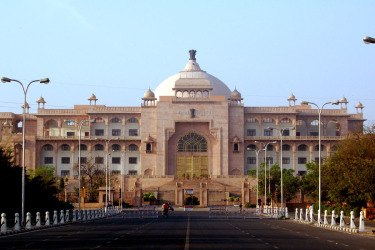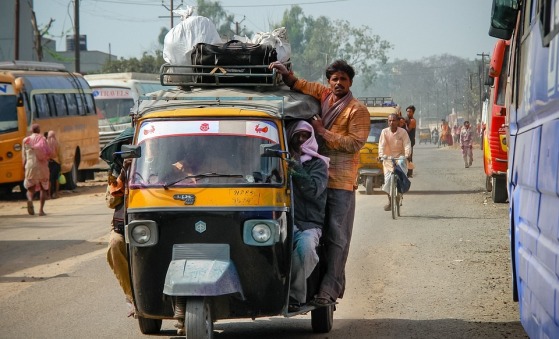
The Rajasthan Assembly passed the Rajasthan Prohibition of Unlawful Conversion of Religion Bill, 2025, on Tuesday, September 9, 2025, introducing stringent penalties including life imprisonment and fines up to Rs 1 crore for religious conversions through force, fraud, allurement or coercion.
The bill was passed by voice vote amid protests by Congress MLAs, who boycotted the debate and walked out of the House. The Opposition party had been demonstrating in the Well of the House over a separate issue concerning cameras allegedly installed near Opposition benches to monitor their activities.
Minister of State for Home Jawahar Singh Bedham defended the legislation, stating that while Article 25 of the Constitution guarantees freedom of religion, “the freedom is not to force the poor, Dalit, tribal, uneducated, exploited or the underprivileged to change their religion through greed, temptation, fear or deception.” Bedham quoted Prime Minister Narendra Modi, saying that “every citizen has a right to follow and freedom to choose their religion, but no one has the right to convert by force or inducement.”
The new legislation introduces significantly stricter penalties compared to the previous version introduced in February 2025. Under the bill, conversion through fraudulent means attracts punishment ranging from seven to 14 years imprisonment and fines up to Rs 5 lakh. The penalties become more severe for specific categories. Conversion of minors, women, Scheduled Castes, Scheduled Tribes, and persons with disabilities through deceit would attract jail terms of 10 to 20 years and fines of at least Rs 10 lakh.
Mass conversions through fraudulent means carry the harshest punishment of 20 years to life imprisonment and fines of not less than Rs 25 lakh. In special cases involving force, fraud, or coercion, including false promises of marriage, the punishment extends to life imprisonment with a minimum fine of Rs 30 lakh. Those receiving foreign or illegal funds for conversion activities face rigorous imprisonment of 10 to 20 years and fines of at least Rs 20 lakh. Repeat offenders face even stricter penalties, including fines up to Rs 50 lakh.
The bill empowers authorities to confiscate and demolish properties used for illegal conversions, while institutions involved can permanently lose licences and pay fines up to Rs 1 crore. For voluntary conversions, individuals must inform the district magistrate months in advance with detailed declarations subject to verification, public notification, and inquiry. Violations can result in up to 14 years imprisonment.
All offences under the bill are cognisable and non-bailable, triable by sessions courts. The legislation declares marriages undertaken solely for conversion as void, with conversions carried out before or after such marriages considered unlawful. However, the bill exempts those returning to their “ancestral religion” or “ghar wapsi” (homecoming) from these provisions.
Speaking outside the Assembly, Leader of Opposition Tika Ram Jully accused the ruling party of pursuing their “agenda” and questioned the timing of the legislation. “When Modi ji has been on the PM seat for 11 years, why are they remembering conversion today, why aren’t they making a law in the Centre,” he said. Jully pointed to the government’s own admission that there had been zero “love jihad” cases in the state and noted that only 13 religious conversion cases had been reported in the last five years, most of which had been closed. He alleged the bill aimed to “vitiate the atmosphere of love, brotherhood and communal harmony.”
RLD MLA Subhash Garg questioned the need for such strict provisions not found in similar legislation in other states. He warned that the bill would lead to corruption, saying the non-bailable nature of offences would leave accused persons “at the mercy of the police.”
Bharat Adivasi Party MLA Thavar Chand Damor from Pratapgarh’s Dhariyawad presented a unique perspective, declaring, “I, Thavar Chand Damor, am an Adivasi. I am not a Hindu, Christian, Muslim, I am only and only an Adivasi.” Damor argued that Bhil and Gond Adivasis don’t come under the varna system and are “dharma poorvi (before religion).” He noted that the 1931 census had a separate column for tribals with an independent religion code, which was subsequently removed.
“The truth is that those tribals who converted to Christianity did not convert from Hinduism, but from a tribe. So, if there is a ‘ghar wapsi’ for them, it should be as a tribal, and not into the Hindu religion,” Damor said. He suggested that if the government wanted to stop conversions, tribals should be given back their religious code column as a first step.
Bedham accused the Congress of avoiding discussion as part of a “hidden agenda to appease a particular community.” He cited concerns regarding “love jihad,” foreign-funded missionary activity, and threats to social harmony and national security as justifications for the legislation. The minister said the bill would help maintain peace and harmony by preventing conflict among different communities and would prove effective in preventing large-scale organised religious conversions among weaker sections of society.
Bedham referenced Supreme Court and Allahabad High Court rulings, stating that courts have accepted forced religious conversion as a violation of religious freedom. He mentioned that Chief Minister Bhajan Lal Sharma felt the need for strict law due to the manner in which conversions were increasing in Rajasthan. The minister shared a news clipping from Banswara about alleged forced conversion of tribals, expressing sadness that “some people in this House are refusing to accept themselves as Hindus.”
Earlier this month, state Law Minister Jogaram Patel had announced that the previous bill would be recalled, stating that “the new bill has harsher punishments than the outgoing one to prevent the menace of conversion.” With this legislation, Rajasthan becomes the 12th state to have an anti-conversion law, joining Odisha, Arunachal Pradesh, Gujarat, Chhattisgarh, Karnataka, Jharkhand, Haryana, Uttarakhand, Himachal Pradesh, Uttar Pradesh and Madhya Pradesh. The House was adjourned till the next day after the bill’s passage.




